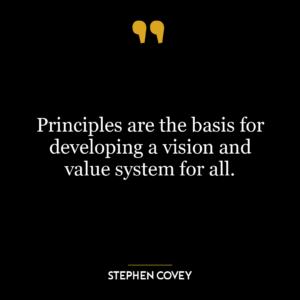The exercise of true leadership is inversely proportional to the exercise of power.
This quote suggests that the more genuine leadership one exercises, the less they need to exert power or control. In other words, effective leadership is not about imposing one’s will on others but rather about inspiring and motivating them to work towards a common goal. Authentic leaders don’t rely on their authority or position to get things done; instead, they earn respect and loyalty through their actions, values, and integrity.
The inverse relationship between leadership and power can be seen as a sliding scale. On one end, a person who relies heavily on their power often lacks true leadership skills. They may use their position or authority to control or manipulate others, which can lead to resentment and disengagement among their followers. On the other end, a person who displays strong leadership skills doesn’t need to exert much power. They lead by example, inspire others with their vision, and empower their followers to take action.
Applying this idea in today’s world, especially in the workplace, suggests a shift from traditional, hierarchical forms of leadership towards more collaborative and participative styles. Rather than dictating orders from the top down, leaders are encouraged to foster a sense of shared responsibility and mutual respect. They should provide their teams with the tools and support they need to succeed, rather than simply telling them what to do.
In terms of personal development, this quote emphasizes the importance of cultivating leadership qualities such as empathy, humility, and emotional intelligence. Instead of striving for power or control, one should focus on building trust and fostering collaboration. This approach not only makes for a more effective leader, but also contributes to a more positive and productive environment, whether that’s in the workplace, at home, or in any other social setting.









